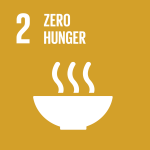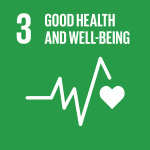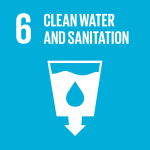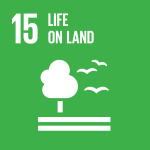
13 October 2022 – The Global Environment Facility-Least Developed Countries Fund has approved US$4.5 million towards strengthening the climate resilience of the drinking water sector in Haiti, with around 130,000 people in the country’s southeast to directly benefit from more reliable access to clean drinking water and, in turn, improved health, livelihoods, and food security.
Under the leadership of the Ministry of Environment and the Potable Water Directorate and with the implementing support of the NGO Helvetas, the 5-year project will work hand-in-hand with communities, local organizations, and government institutions to advance climate-resilient drinking water solutions at multiple levels.
Around 1 in 3 Haitians do not have access to safe drinking water, with a stark disparity in the availability of water services between urban and rural areas: in 2020, 62 percent of urban residents had access to basic water services versus 84 percent of rural residents.
Increased rainfall variability is leading to more frequent intense flooding and drought. This trend, coupled with high deforestation rates and unsustainable farming practices, has radically altered Haiti’s natural landscape, reducing its capacity to capture water and recharge the island’s aquifers. More extreme weather driven by climate change is exacerbating pressure on drinking water resources and increasing the risk of waterborne diseases such as cholera.
Lack of access to safe drinking water directly impacts health, livelihoods, and cost of living for already-vulnerable communities. Women and children are disproportionately at risk of negative health-related impacts due to higher exposure to contaminated water because of gender roles in the home.
“The government of Haiti warmly welcomes the approval of this adaptation project, which will deliver concrete benefits to some of our most vulnerable communities,” said Minister for the Environment, James Cadet. “By increasing the climate resilience of the water sector, the project will advance multiple Sustainable Development Goals, including reducing hunger (SDG 2), ensuring healthy lives and wellbeing (SDG 3), clean water and sanitation (SDG 6), climate action (SDG 13), and life on land (SDG 15). It will also support Haiti’s capacity to address climate change in the longer-term as planned in the Haiti National Adaptation Plan.”
“In recent years UNDP has been working closely with the government of Haiti, NGOs and civil society organizations, and other community actors to prepare for the impacts of climate change, including strengthening the adaptive capacities of coastal communities and integrating risks into national development planning. We have also been supporting the development and the implementation of a comprehensive National Adaptation Plan with guidance and strategies towards reducing climate-related vulnerabilities and disaster risk,” said UNDP Resident Representative in Haiti, Nick Rene Hartmann. “This important project is another piece of the development puzzle, addressing one of the country’s most urgent priorities: water.”
The project has three main focuses: improving knowledge and awareness around the impacts of climate change on drinking water in Haiti; strengthening policy, regulations, and institutional capacity for the management of drinking water; and promoting practices to increase the supply of drinking water.
At national, regional, and local levels, the project will train water governance staff in evidence-based climate-resilient water resource management and land-use planning. Together with a project under development for the Green Climate Fund, that looks to integrate disaster risk reduction for water management, UNDP will be able to support Haiti in addressing the most pressing climate vulnerabilities.
Meanwhile, communities themselves will be equipped to more effectively plan their response to climate change impacts on drinking water, with the establishment of community groups intended to support inclusive, ongoing sustainable water resource management at the local level.
Women in particular – given the disproportionate impact of drinking water shortages and poor-quality water on their health – will be empowered to implement land-use and water management plans developed by the project.
Recognising the role of environmental degradation in the problem – and the power of nature in adaptation solutions – the project will rehabilitate 700 hectares of land through agroforestry and reforest 3,840 hectares. The project will create incentives and capacities in communities to maintain the restored ecosystems, ultimately resulting in the development and implementation of technological and financial packages for conservation and agroforestry to be promoted through a Cash4Work program. In the case of agroforestry, the community will see important livelihood benefits.
Crucially, the project will also focus on integrating climate change considerations into regulatory and policy frameworks, enhancing water monitoring and modeling capacity, and better integrating sustainable water management into the country’s climate goals (Nationally Determined Contribution) and National Adaptation Plan.
The project is expected to launch in early 2023.
*****
Additional Notes to Editor
Between 1993 and 2012, Haiti experienced two droughts, 26 hurricanes and 31 floods (ten of which were directly attributed to hurricanes).
General trends of projected temperature and precipitation changes for Haiti over the 21st century indicate a warmer and drier climate. While temperature projections are more certain, rainfall uncertainty will increase along with rainfall variability in terms of both rainfall seasonality and the intensity of rainfall events. These trends are projected to increase in intensity in the future.
The project targets vulnerable areas of the country’s South-East Department, specifically the catchment areas, recharge zones and springs of the Cresson, Bodarie, Préchet, Cascade Pichon and K-Royer Drinking Water Supply Systems (SAEPs). The five target SAEPs were selected according to a methodology developed collaboratively between the Government of Haiti, UNDP Haiti and consultants, with criteria including community vulnerability to climate change; ecosystem vulnerability to climate change; number of potential beneficiaries; potential to build on past or ongoing projects; and potential for support and buy-in.
For more information, please contact Ruvens Ely Boyer | UNDP Communications Officer , Haiti ruvens-ely.boyer@undp.org UNDP or visit the project page here.





